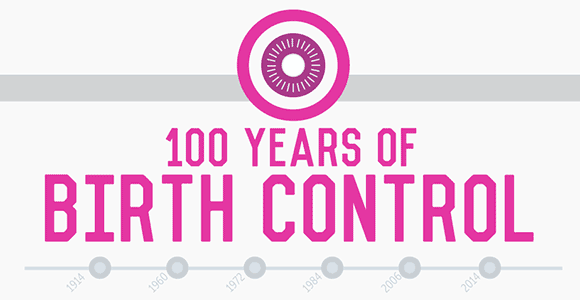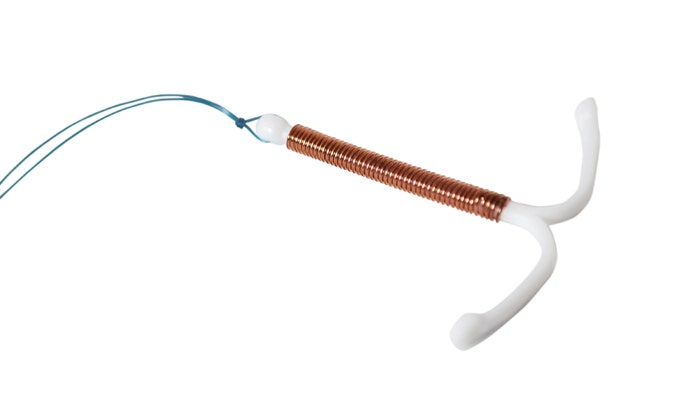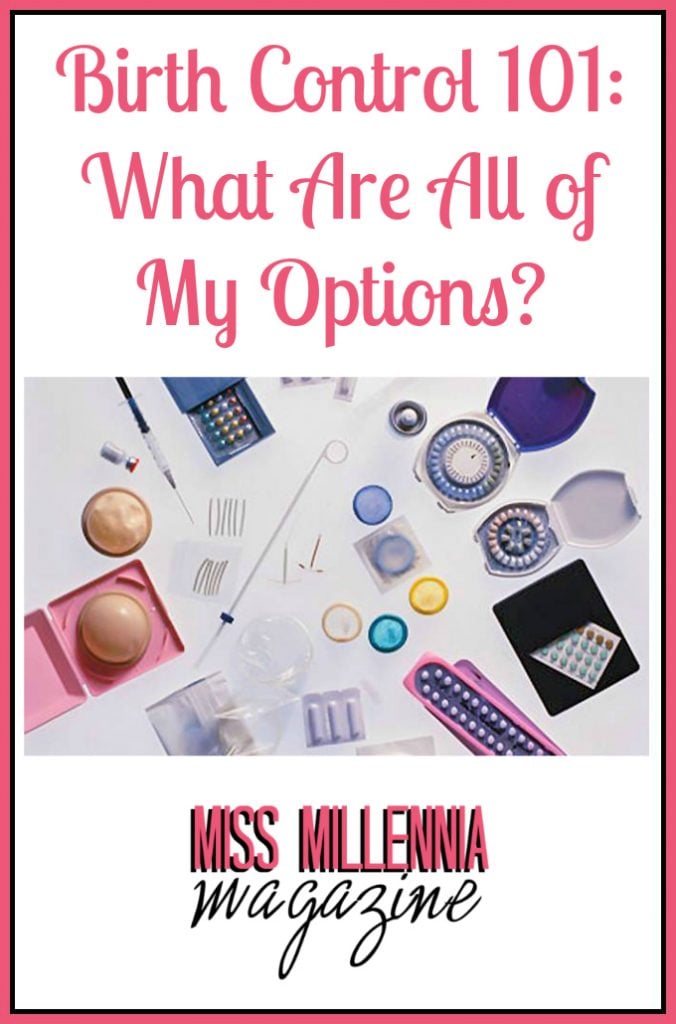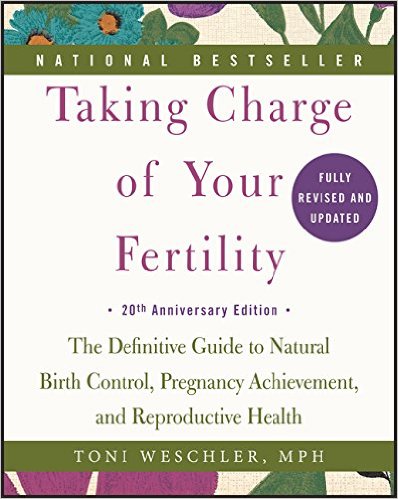Birth Control 101: What Are All of My Options?
For some reason, birth control is a somewhat taboo subject. I suppose because it has to do with women’s reproductive health, everyone is supposed to keep hush-hush about it. Even women. Which makes no sense. Ladies, I encourage you to talk about birth control with your sisters, moms, friends, significant others, acquaintances, doctors—everyone! So, Miss Millennia is here to provide you with a complete list of all your birth control options, along with an explanation of benefits and drawbacks of each kind.

**This article contains affiliate links, and we will be compensated for any purchase made after clicking on them. Thank you for supporting Miss Millennia Magazine!**
When you first decide to start birth control, the number of options can be overwhelming. You never know how your body will react—you might experience some negative side effects, or you might have none at all. The first step you should take is talking to your Gynecologist (or start seeing one, if you don’t already) about what your best options are. However, being informed before you have a conversation with a medical professional is also important! So be sure to look over this list extensively.
The Pill

Birth control pills are the most commonly used form of contraception. All it involves is swallowing a small pill once a day! The difficult part about using the pill, though, is that they are most effective when taken at the same time every day. If you don’t take it as directed, you have about a 9% chance of becoming pregnant, according to Planned Parenthood. As Millennials, we have such busy schedules that are always changing, which makes the pill inconvenient for some women. Personally, I have an alarm on my phone that reminds me to take my pill every day. Without it, I would never remember! Also, with the pill there is the potential for some side effects, but most women don’t experience any and they’re usually relatively mild. If you do have some side effects, they usually go away within two or three months.
Condoms
Condoms are another very popular form of preventing pregnancy. Plus, they help to prevent against STI’s! The catch, though, is that condoms aren’t 100% effective against either. However, it is still very important to use a condom when having sex. The most well-known type of condom is the external condom (which goes on a penis), but there are also internal condoms (which go in a vagina)!
Remember, condoms can (and should!) be used in conjunction with almost all other forms of birth control. This does not mean to “double wrap,” or use two condoms at once. That actually decreases their effectiveness! What I mean is that you should always wear a condom while having sex, even if you’re using another form of birth control. Unfortunately, most methods are not 100% effective, so wearing a condom during intercourse while on another form of birth control helps to decrease your chance of pregnancy.
Vaginal Ring
Vaginal rings are what they sound like—a little ring you insert into your vagina once a month. The ring, also called the NuvaRing (its brand name), is left in for three weeks and taken out for the final week of each month. While the NuvaRing is inside, it releases hormones that prevent pregnancy. So essentially, it works the same was as birth control pills do, and it’s just as effective.
This method might sound undesirable to some women. I mean, who wants to stick a little rubbery disc in there? However, if you’re accustomed to using tampons or menstrual cups, it’s really not that different. One major concern is what to do if it falls out. All you need to do is rinse it with lukewarm water and insert it again within 48 hours!
Also, like with any method of birth control, there is the potential for some safety risks, but serious side effects are rare and become more likely only if you suffer from another condition. Make sure to talk to your doctor about how safe the NuvaRing would be right for you.
Birth Control Shot
Is getting your yearly flu shot no problem for you? Then birth control shots might be a great method for you. All you have to do is receive one shot every three months, and you’re protected! If you take the shot as directed (once every twelve weeks), you have less than a 1% chance of becoming pregnant. These shots are extremely convenient because you only have to worry about it four times a year. Another great thing about this method is that the shots do not contain estrogen, so if you are unable to take estrogen or you’re breastfeeding, it is a safe option for you.
Intrauterine Devices

An IUD is a small, T-shaped device that is inserted by a health care provider into the uterus. While it can be expensive (up to $1,000), it lasts for a year and it’s one of the most effective methods of birth control, according to Planned Parenthood. When using an IUD, it’s common to have some soreness when it’s first put in and you may have spotting and/or irregular periods for the first three to six months. Depending on which kind of IUD you use, side effects will vary. However, a huge plus is that an IUD is effective immediately after it’s implanted! Intrauterine devices are not for everyone, so when talking to your doctor it’s important to be open and honest about your sex life.
Birth Control Implant

Similar to an IUD, a birth control implant is a device that is inserted under the skin of the upper arm by a health care provider and lasts for up to three years. The device is about the length of a matchstick, and you’ll hardly even notice that it’s in your arm. Insertion only takes a couple of minutes, and you won’t feel anything because your arm will be numbed. Irregular bleeding is the most common side effect, and if you experience it at all it will only be for about six months to a year. Most women can use birth control implants safely, and they require the least maintenance since you only have to get a new one about every three years. Plus, they’re very effective!
Birth Control Patch
This is a small patch that sticks to your skin and releases hormones. The patch should be used every three out of four weeks, with a new patch each week. If you use the patch correctly, it’s very effective for preventing pregnancy. If you don’t place a new patch on at the correct time, the correct level of hormones won’t be in your body and the patch’s effectiveness will be decreased. One major benefit of this method is that it often gives women lighter periods! Also, it’s very convenient and safe for most women. Take note, though, that the brand version of the birth control patch is no longer sold, so you have to use the generic version.
Emergency Contraception
So, your condom broke last night. Or, in the heat of the moment, you forgot to put one on. And either you don’t use another form of birth control or you’ve been inconsistent with it. Oops. This can be a frightening moment. That’s what emergency contraception is for! Otherwise known as the morning-after pill, emergency contraception can be taken for up to five days after having unprotected sex.
Remember, try to only use emergency contraception for its intended purpose—emergencies. You shouldn’t rely on it as your primary or even secondary form of contraception because it’s harsh on your body. And you need to take care of yourself!
There are many other methods of birth control in addition to the ones I’ve discussed in detail. If you want more information about them, I highly recommend visiting Planned Parenthood’s website! Other methods include:
- Birth Control Sponge (also known as the Today Sponge)
- Fertility Awareness
- Cervical cap (also known as the FemCap)
- Breastfeeding
- Vasectomy
- Tubal Sterilization
- Spermicide
- Outercourse
- Withdrawal
- Abstinence
Again, one of the most important things you need to know about birth control is that you should talk to a Gynecologist about what method will be best for you. All women are unique—what may work really well for your sister or best friend might not be the best option for you. So, talk to the women in your life, but be sure to consult with your doctor as well.
Miss Millennia wants to know what form of birth control works best for you! Let us know in the comments. Enjoy having safe, consensual sex!
Resources: NuvaRing, Planned Parenthood, Web MD (this article and this article)









